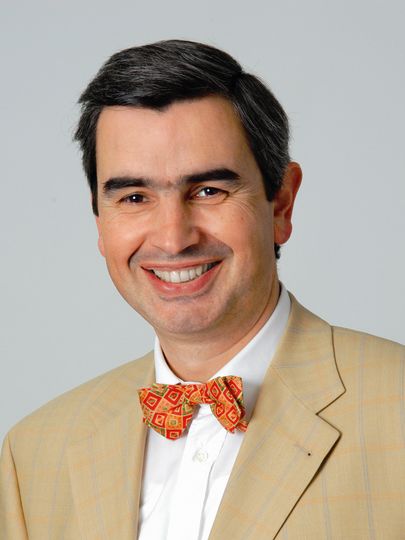What concrete assistance does Osec offer to firms keen on exporting? we provide precise answers to technical questions, such as customs allowances, product certificates or contact with distributors. we also offer more direct business assistance in the form of market research: we identify a product’s potential on a given market, analyze the competition and identify the possible parameters.
How is your foreign representation organized? we have 15 “swiss business hubs” worldwide, two of which cover entire regions. our dubai hub oversees the Gulf countries and singapore covers south-East Asia. centered on swiss embassies, these hubs are at the forefront of the diplomatic network. much of the staff is local, which means they’re not only familiar with local culture and languages, but also with local associations, lawyers and other contacts. so they are our frontline prospectors.
Do you offer any guarantees or assistance on the risks involved in export? That’s covered by the Export credit Agency of switzerland (ErG), with whom we closely cooperate.
This state institution covers the risk of political instability, for example. on the other hand, it does not cover private companies in cases of default on payments.
What particularities and opportunities can the Russian market offer a Swiss entrepreneur? russia is a bullish market hungry for swiss products.
A significant part of the population wants to identify with brands strongly associated with switzerland, whether those are cosmetic, technological, pharmaceutical, luxury goods or clockwork. we’re also seeing growing demand for skilled labour in the petrochemicals sector.
What about the risks? They’re greater than in most western countries.
That’s linked to cultural differences, but also to russia’s recent history, which has gone through a brusque transition from a centralised to a marketbased economy. As a result the country is less stable, less organized, and business partners are less reliable than in more developed countries. in that sense, circumstances are comparable to those in china. That’s why russia needs more preparation before diving in.
“RUSSIA IS A BULLISH MARKET HUNGRY FOR SWISS PRODUCTS.” Can you describe the small businesses that approach you? They’re diverse. They range from small, start-up biotech companies to firms all over the world looking to make the most of their footholds. we’re presently in contact with 6,000 companies. According to our estimates, 15,000 swiss firms draw less than 5% of their turnover from exports, and 20,000 others could potentially become exporters. That represents a client pool of over 30,000 companies, or 10% of all firms based in our country.
What advice would you give entrepreneurs keen to start exporting? To begin with, they must ask themselves several questions: first, if exports make sense for them. in other words, if there are openings abroad for their services or products. That being the case, they must identify the countries that have potential. finally, they must do a detailed analysis of the new markets before launching into them.
What conditions must a firm comply with to receive your help? our services are open to all firms based in switzerland. in the vast majority of cases, we’re talking about small businesses. it happens regularly, however, that big firms will ask for our services if they’re targeting an unknown market, for example. otherwise they carry out this work internally.
What are the costs? The first session is free. our call center is available for more information. if the information requested is easily accessible, we provide it free of charge. if it requires research, we charge between chf 200 and 300. for more in-depth research, the price can rise to chf 500 to 10,000, depending on the mission.
The Export credit Agency of switzerland (ErG) has been key to switzerland’s economic policy for over 70 years.
The institution offers swiss exporters insurance services for high political and economic risk countries in particular.
The ErG rates russia at four on a scale of one to seven, going from low to high risk. credit is extended for a maximum of 10 years, as defined by the oEcd. The coverage offered by the ErG extends to consumer goods exports, investments, construction and engineering, among other services.













